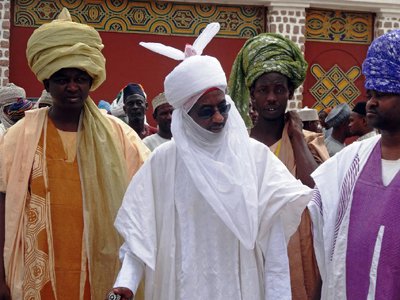Emir of Kano, Muhammad Sanusi II has accused President Muhammadu Buhari of encouraging corruption with his exchange rate policies.
Sanusi said the president’s anti-corruption stance was totally inconsistent with the foreign exchange regime he supported.
The Emir of Kano, a former governor of the Central Bank of Nigeria has been consistent in his contributions to the polity especially as regards the Nigerian economy.
“Unfortunately, because the exchange rate is right out there in front now, monetary policy is being seen as the barometer for broader economic thinking. It is sad that on this one policy you get it so wrong that you risk taking away attention from everything else you are doing.
“There are no easy options and devaluation is better. But I had reserves of over $40bn and an oil price at over $110”, the Emir said.
The country’s economic woes are now being exacerbated, with the currency peg and restrictions in the foreign exchange market creating “a lot of speculative and precautionary demand,” Sanusi argued.
Exporters and investors “are holding on to foreign currency, as no one would sell at the rate the government is setting”, while “the government does not have the reserves to keep the exchange rate at its official level in the market”.
“These policies have been tried in different parts of the world and in this country before and they have just never worked. No matter what the stated intention behind them, they are wrong,” he said.
The gap between the black market rate and the “artificial” official exchange rate would keep widening until the bank adopted a more realistic policy or the price of oil climbed and dramatically increased reserves, he further said.
He said a more flexible exchange rate policy at this point would be the “least bad option”.
“We are hopeful that given all the other positive things done so far, policy will head broadly in the right direction and flexibility will come in down the line.”
It can be recalled that, Christine Lagarde, managing director of the International Monetary Fund IMF said Nigeria needs to adopt a sensible foreign exchange policy as it strives to fend off external economic shocks.

